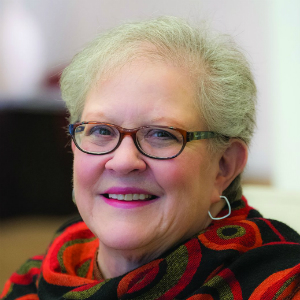We all see so many posts on social media that read “Can you believe they did…” or “Can you believe they are charging for…” and similar discussions related to meetings and events. With this in mind, I reached out to a variety of meeting planners and suppliers, the latter in sales and convention services, to find out how they might respond to these questions or statements:
Planners, do tell…the funniest, or in your view, most frustrating, excuses you’ve heard from suppliers and hoteliers/facility managers or other vendors, etc., about why they couldn’t do something requested or why something that was promised wasn’t delivered.
Suppliers, do tell…us the same for why planners/groups push back on policies, or the reasons they give for why they “must have” some condition of a contract or the specifications.
Additional Note to Suppliers: [I will not mention you by name or affiliation and will hide as much as I can of your response to not identify you or your business].
Responses have been edited for clarity and length. If in our editing, we have erred in meaning, we apologize. As always, we encourage you to add your comments below or please send them to me at FridayWithJoan@aol.com and I’ll be glad to post without attribution.
Responses from meeting planners:
Candy Adams, The Booth Mom®, Self-employed, Tradeshow Consulting
LAMEST EXCUSE: When requesting availability of rental wall panels for a Denver exhibit, I stated we were trying to conserve budget by renting from local vendors. When I received their proposal, they said the panels were in stock, so a full quote was requested.
The quote surprisingly listed $6,000-plus charges for shipping plus a 4 percent credit card handling fee (illegal in Colorado). When confronted, the exhibit house owner’s explanation on the fees was, “You need to pay to bring the panels in from where we rent them in Indiana. And nobody else has ever caught us before on the illegal 4 percent fee.”
When I asked Candy for more, she said: “It drives me bonkers on [responses to] RFPs ‘cause I’m SO explicit about what my clients need, and the exhibit house’s goal is to rent you what they’ve got in stock, not what you functionally need.
So the question becomes, “Didn’t they read it?” vs. “Did they decide to ignore it and push what they’ve got anyhow?” Sadly, it’s usually the latter, hoping you’ve run out of time and patience on the details that make or break my client relationships.
I make them put everything—down to how many door keys for the closets and kiosks and what kind of “cleaning kit” (usually a bottle of window cleaner and roll of paper towels)—in the contract so they can’t feign “oops” … Makes me a PITA, I’m told (Pain in the Ass!).”
MaryAnne Bobrow, President, Bobrow Associates
Recent experiences indicate that while venue/hotel sales professionals are predominantly experienced and knowledgeable about current trends, the position of CSM, which I consider “boots on the ground,” to be increasingly lacking in education, experience and, most importantly, customer service.
While the excuses given for why something is or was not done on time vary, the focus of the “why” is that they are very busy, and the client needs to adhere to their schedule if they want their event to run smoothly. Example: The BEO stated deadline is 57 days prior to the start of the first of 85 events happening over a multi-day event.
CSM demands the BEOs three weeks in advance because “she is busy with other clients.”
One wonders if we are seeing the end of customer service as we know it.
[Observation and note from Joan: I’ve been a supporter of ACOM, now ESPA, for years.
I have long believed that hotel brands, owners and management companies do not understand or appreciate the role of CSMs—also called “Event Service Professionals”—and thus shortchange their training, continuing education and ability to work with clients from site inspection forward.
Planners and salespeople: Step up and demand better for our CSM partners. Ask on your RFPs if the CSMs are members of ESPA and afforded time and money for continuing education, and if so, in what ways. We can influence the changes that can happen.]
Feborah M. Dixon, CMP, Independent Meeting Planner
The most frustrating thing that I’ve heard from both sides of the desk [group or hotel/venue] is, “We can’t do it because we’ve never done it before.”
Isn’t creativity part of our job description? Aren’t we supposed to be innovative? It always frustrates me to get the “no” before we even talk about it. Often, if we take a moment to explore an idea, we can figure it out or come up with something even better for our attendees.
Erika Morant, MTA, CMP, Washington, D.C.-Based Event Planner
It was 2015 and I was working as an event planner for a law firm. Baltimore was in civil unrest amidst the Freddie Gray aftermath. A conference, for which I was planning an associated client dinner, was canceled due to the unrest.
I contacted the restaurant to exercise force majeure. The manger argued that the restaurant was still open to serve dinner despite the unrest.
Just one problem: Our group had no guests to serve. When I noted “civil unrest” was included in his restaurant’s force majeure clause and pointed it out, the manager was miffed. Left with no choice, he “agreed” to accept the cancellation.
Wendy Porter, Owner/Chief Events Officer, Wendy Porter Events
I worked on an event for 130 people that included 30 executives, which was part of a 20,000-plus person event held in a major hotel in a popular Southeast U.S. destination.
I didn’t have control over the hotel contract; the show owner did. I did have control over the contracts for the specific events we did within the larger show.
We were the first group [at this hotel] after a major expansion and renovation. We were promised everything would be in working order when we arrived.
Um … no. It was nothing short of a nightmare. Prior to arrival, we learned they’d double-booked event space we had contracted for a high-end VIP reception.
The hotel said, “It’s not a big deal, is it? We can just move you to another room.”
Invitations had been sent and another sponsor of the same tradeshow had invited the exact same group of VIPs to that exact same room for their event—at the exact same time! The sales team explained that the space was double-booked because of the renovation!
Not a good reason.
At the pre-con, we’d reviewed everything. However, on arrival, guests had major problems checking in, including wrong room types or missing reservations among them.
One person who was to have a refrigerator for medications didn’t. The CEO’s room, promised for early arrival, was not available. The guest rooms’ sliding glass doors were not installed correctly and would not open; rooms didn’t have hot water; TVs and phones didn’t work. The issues went on for pages! And again, the renovation was blamed.
The hot water issue was only one of the water issues: For the first day’s planned off-site corporate social responsibility program, we were going to rehab gardens at a local senior center. It was raining; we’d thus have to work in rain and mud.
We learned the morning of the event by a flyer slid under the door that they would be turning off the water that day in part of the building (where we were housed). When 60 wet and muddy people returned in hopes of showering to go to a function, there was no water for clean up! Can you say awkward? The hotel response to our issue? Oh, you know, the renovation.
The issues went on and on. I’d never experienced so much chaos at a hotel. Lesson learned? Never be the first group after a new opening or a renovation! It’s kind of funny now, imagining all of my co-workers covered in mud with no way to take care of it … but it sure wasn’t then!
Sue Walton, Co-owner, May and Williams
The funniest things I can think of may not be so funny.
A CVB asked to see me, and because I did have business accepted [in the destination], I agreed, though I don’t usually see CVBs or hotels unless I have business booked or pending.
I waited and waited for them to arrive.
Finally, at 4:30 pm, long after they were expected, they called to say that they would not be coming because they thought 30 miles was a 30-minute drive. They were in a Chicago suburb and had to get to me and then to a dinner at 6, in rush hour traffic!
I would not have even scheduled an appointment that had distances with which I were not familiar, especially during a city’s rush hour!
Lesson: Know the area where you’re making sales calls and schedule according to local traffic, being mindful of your schedule and that of your clients.
Responses From CSMs/Sales for Hotels and DMOs:
The suppliers who responded to my query all requested to remain anonymous.
Following are their responses.
The question was: Tell us why planners/groups push back on policies, or reasons they give you for why they “must have” some added benefit or change-without-charge or other “silly” requests you get. I’d like it to be 100 or fewer words. If you have more than one instance and want to do a few, I’d be thrilled. I will not mention you by name or affiliation and will hide as much as I can of your response to not identify you or your business unless you say otherwise.
A former CSM and salesperson, now a planner, wrote:
“This can get complicated and there really are two sides to this.
Side one: The hotels institute unilateral policy changes without appropriate notification or ramp-up. Examples: charging for lecterns in meeting space, resort fees, energy fees, etc. When a client pushes back on these, there is a concern on their part about whether or not the charge is legitimate. It’s not silly to push back. Very likely these charges weren’t budgeted for.
Side two: The silliest reason I hear—“We can’t afford it.”
Okay, so you’re telling me when you selected our property with the costs being outlined and seemingly understood, all of a sudden you can’t afford it?
In my 30-plus years, I can’t say anyone has made a “silly” request other than they can’t afford it. I’d prefer to think of the issues as unreasonable, unrealistic, unfathomable.”
From salespeople:
The biggest wish list requests come from third-party planners. These requests are not what their client actually wants. Rather, they are often a list that the third party has put together that they sold their client on what they can get them. Often they are unrealistic requests that don’t match the business that they are bringing to the hotel.
My biggest request for wish list items came not from a client, but from a well-known chef whom I asked to speak at an event I was hosting. Since we had worked together many years before, I thought he would help me out. Instead, he asked for a seven-day complimentary stay in a condo in the destination that I represented along with a payment of $10,000.
When I gained my composure, I asked him where he came up with this idea. He said, “My wife told me to ask for that.” I politely declined.
A request for the total removal of furniture, from 50 guest rooms, sticks out as one of the most demanding. More, the client didn’t want to pay for the furniture moving or the storage of it.
Related Reading From the April 2019 Edition of Friday With Joan
Click here to view additional content in the 04.05.19 Friday With Joan newsletter.






